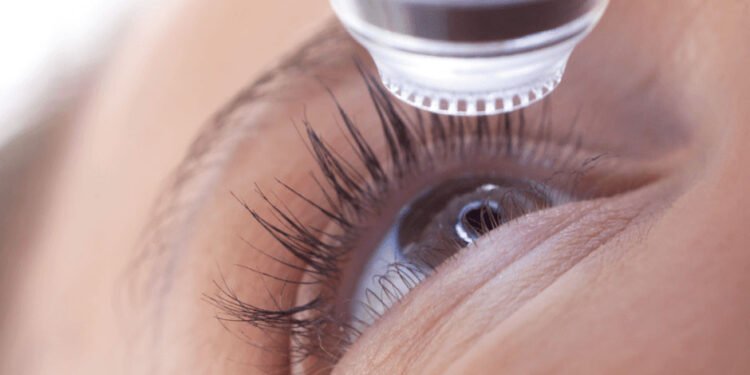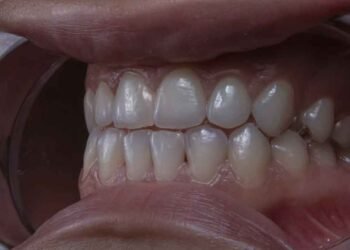When our vision starts deteriorating, it can negatively affect our work, school, and other aspects of our daily lives. With advances in technology and medicine, laser eye surgery has become a popular solution for correcting vision problems. This revolutionary procedure helps correct refractive errors, allowing individuals to see better without corrective eyewear. Here is more information about lasery surgery and four types of vision problems it can correct:
What is Laser Eye Surgery?
Laser eye surgery is a type of refractive surgery that uses a laser to reshape the cornea, or the clear outer layer of your eye. During the procedure, an eye surgeon creates a tiny flap in the cornea and then uses laser energy to reshape the cornea’s inner layers. This helps the eye focus light more accurately on the retina, improving vision. Depending on your refractive error, the laser can make the corneal tissue steeper or flatter. The surgeon then lifts the flap back to its original position, and the healing process begins. This process only takes several minutes for each eye, and many patients experience immediate improvements in their vision. You can book a consultation with Dave Allamby to learn more about the best laser eye surgery in London.
Vision Problems Laser Surgery Can Correct
Laser surgery is most effective for treating refractive errors. These errors can cause nearsightedness, farsightedness, and other vision issues. Here is more information about the vision problems laser surgery can help correct:
1. Myopia (Nearsightedness)
Myopia, or nearsightedness, causes distant objects to appear blurry and close-up objects to be clear. This vision problem occurs due to an elongated eyeball or when the cornea is too curved. This makes images focus in front of the retina rather than directly on it. Myopia usually develops during childhood or adolescence and can worsen over time. Myopia symptoms include blurred vision when looking at distant objects, eyestrain or headaches while using the eyes, and squinting to see clearly. Laser surgery reshapes the cornea so that light entering the eye is focused correctly on the retina for clearer vision.
2. Hyperopia (Farsightedness)
Hyperopia, also known as farsightedness, causes distant objects to appear clear while closer ones are blurry. This happens when the eyeball is too short or the cornea isn’t curved enough, causing light to focus behind the retina instead of directly on it. When you have this eye condition, you may experience eyestrain or headaches after doing close-up work, difficulty reading, and squinting to see better up close. A laser eye surgery professional can reshape the cornea to the appropriate curvature, allowing light to focus correctly on the retina instead of behind it.
3. Astigmatism
An astigmatism is an eye condition in which the cornea is irregularly shaped, causing both near and far objects to appear blurry. It can occur on its own or along with myopia or hyperopia. Symptoms can include eyestrain, headaches, blurred vision at near and far distances, and difficulty driving at night. Laser eye surgery can help correct astigmatism by reshaping the cornea to a more rounded shape. When light hits the cornea with a regular shape, it can be focused normally on the retina, and you can see more clearly.
4. Presbyopia
Presbyopia is an eye condition that is age-related and affects your ability to focus on close objects. It develops gradually over time and usually affects people aged 40 and older. This condition occurs when the eye’s lens becomes more rigid, making it more challenging to focus on close objects. Symptoms may include headaches, eyestrain, difficulty reading small print, and needing to hold things at arm’s length to see them better. Laser eye surgery can help make it easier for your eyes to focus and see objects up close. If you’re experiencing these symptoms, talk to an ophthalmologist about laser surgery.
Benefits of Laser Eye Surgery
The most significant benefit of laser surgery is that it helps reduce your reliance on glasses or contacts. After the procedure, you may no longer need corrective eyewear to see clearly. You can enjoy activities like swimming and playing sports without worrying about losing or damaging your glasses or contacts. Laser surgery may help you read and write more easily, watch TV more comfortably, and drive better at night. You may also have an easier time seeing in dimly lit locations, like movie theaters. Laser surgery is a safe and effective procedure with few risks and side effects. In most cases, the results are immediate and long-lasting. Your vision may still change over time due to aging or other factors. You may require a follow-up procedure in the future if your vision starts to deteriorate again.
Consider Laser Eye Surgery
If you’ve been experiencing a refractive vision error, laser surgery can be a safe and effective option for improving your vision. It can help reduce or eliminate your reliance on corrective eyewear, allowing you to enjoy activities without worrying about losing or damaging your contacts or glasses. This procedure may not be suitable for everyone, so consult an eye specialist to determine whether you’re a good candidate. Contact vision specialist or eye surgeon today to learn more about laser surgery.












